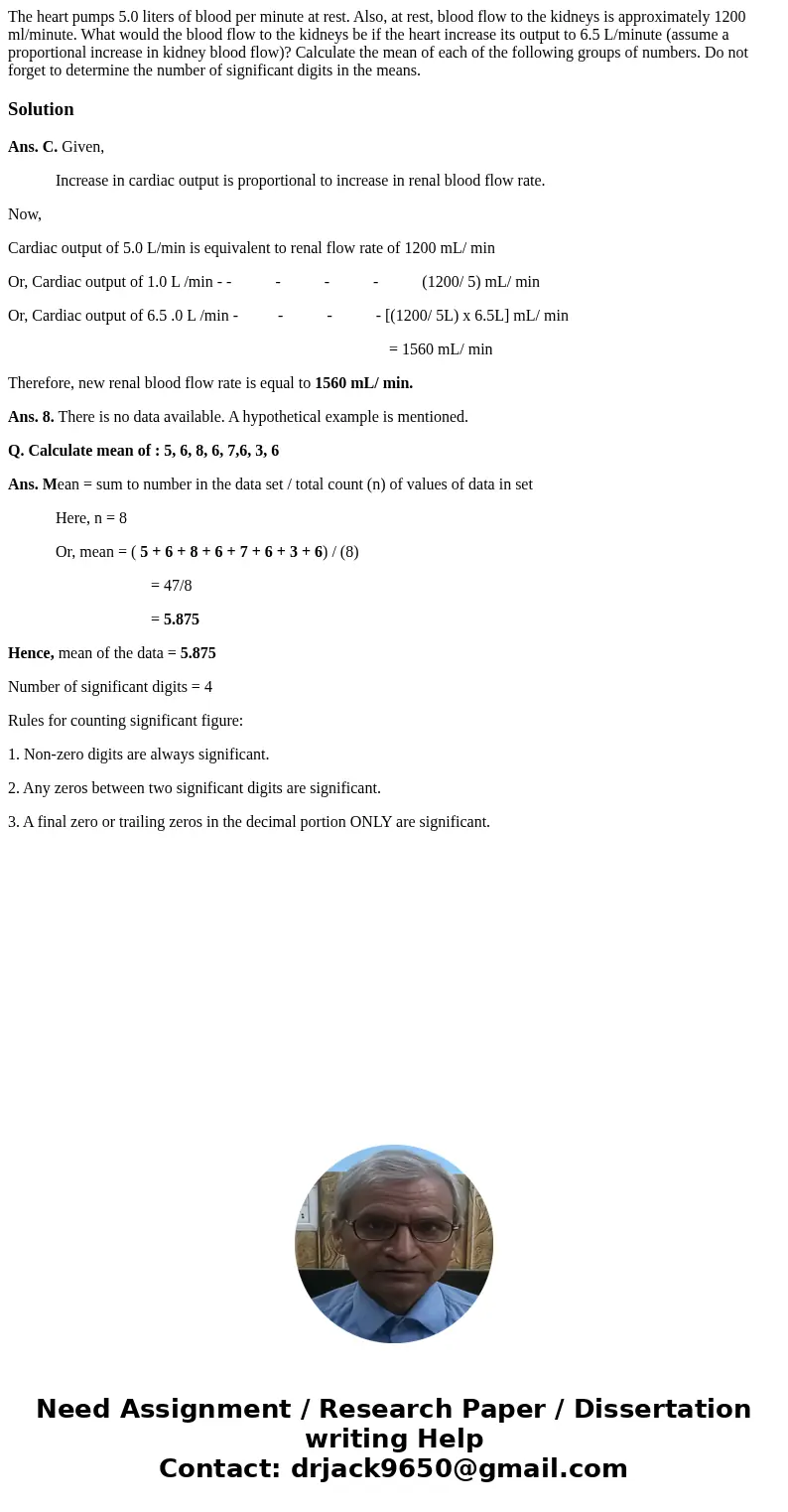The heart pumps 50 liters of blood per minute at rest Also a
Solution
Ans. C. Given,
Increase in cardiac output is proportional to increase in renal blood flow rate.
Now,
Cardiac output of 5.0 L/min is equivalent to renal flow rate of 1200 mL/ min
Or, Cardiac output of 1.0 L /min - - - - - (1200/ 5) mL/ min
Or, Cardiac output of 6.5 .0 L /min - - - - [(1200/ 5L) x 6.5L] mL/ min
= 1560 mL/ min
Therefore, new renal blood flow rate is equal to 1560 mL/ min.
Ans. 8. There is no data available. A hypothetical example is mentioned.
Q. Calculate mean of : 5, 6, 8, 6, 7,6, 3, 6
Ans. Mean = sum to number in the data set / total count (n) of values of data in set
Here, n = 8
Or, mean = ( 5 + 6 + 8 + 6 + 7 + 6 + 3 + 6) / (8)
= 47/8
= 5.875
Hence, mean of the data = 5.875
Number of significant digits = 4
Rules for counting significant figure:
1. Non-zero digits are always significant.
2. Any zeros between two significant digits are significant.
3. A final zero or trailing zeros in the decimal portion ONLY are significant.

 Homework Sourse
Homework Sourse